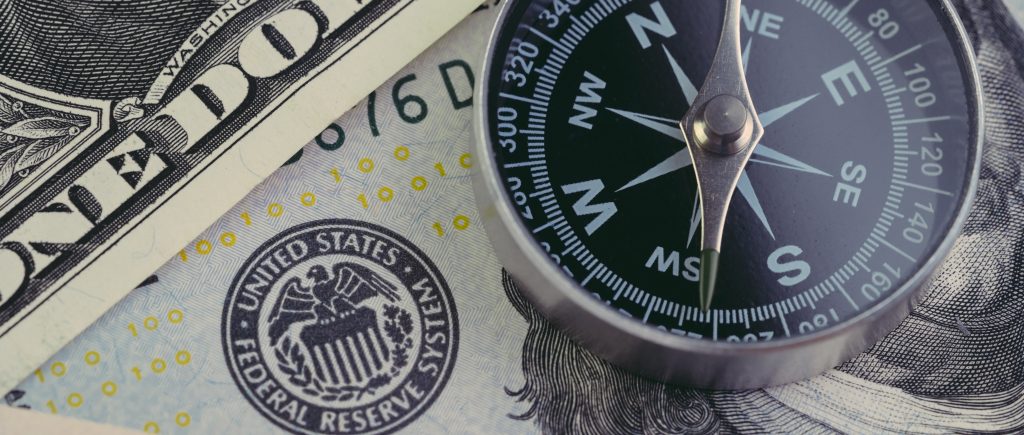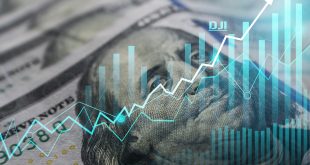Major European markets has a day off, Monday, making for generally quite subdued trading conditions for most of the day, with flows picking up somewhat. The US dollar traded firmly across the board against its major G10 counterparts and the Dollar Index hit its highest level since April 2020 in the 100.80s.
Traders cited expectations for an increasingly aggressive Fed tightening cycle, as also reflected by upside in US yields across the curve, as boosting the buck on Monday.
Aside from two pieces of data; namely housing market reports and the release of the April Philly Fed Manufacturing Index, the main input to the Fed tightening, US economic outlook stories will come when Fed Chair Jerome Powell speaks on Thursday at the IMF/World Bank meetings.
Jerome Powell is expected to entrench expectations that the Fed will be raising interest rates by 50 bps at the upcoming meeting and likely a few more meetings thereafter, as well as kick-starting balance sheet runoff soon. Most investors think this may mean even more upside for US yields and the US dollar ahead.
The Fed’s position as one of the more hawkish G10 central banks was not the only factor supporting the buck on Monday. Market commentators also cited pessemism about the Russo-Ukraine war, with peace talks seemingly at a dead-end (as per remarks from Ukrainian President Zelenskyy over the weekend) and with Russia kicking off its offensive in the east.
The worst performer of the major G10 currencies was the Aussie dollar, with AUD/USD falling 0.6% to one-month lows underneath the 0.7350 mark, perhaps weighed amid more confusion/pessimism about the lockdown situation in China. Better than expected Chinese GDP growth figures for Q1 2022 did little to ease concerns about the outlook for the Chinese economy for Q2.
This week’s IMF/World Bank meetings will be used as a platform by NATO/Western nations to push for tougher sanctions on Russia, thus underlying the stagflationary risks the conflict and associated sanction response poses to the global economy.
The yen also faired poorly mid upside in US yields, with USD/JPY hitting its highest levels since 2002 near 127.00. Recent jawboning about the negative impact of yen weakness in Japan has not bolstered expectations for some kind of currency market intervention to reverse recent yen weakness.
Indeed, analysts suspect that as long as the BoJ continues with its ultra-dovish flagship policies of negative interest rates and yield curve control, the yen is likely to remain under selling pressure. BoJ Governor Haruhiko Kuroda on Monday reiterated that it remains too early to discuss departing from these policies.
The Canadian dollar was the second best G10 performer, aided by higher oil prices and with Canadian Consumer Price Inflation data later this week in focus. USD/CAD remained subdued just above 1.2600 and below its 200 and 50-Day Moving Averages.
EUR/USD dropped about 0.25% to back under 1.0800 and is once again eyeing last week’s lows around 1.0750. GBP/USD dropped about 0.4% to just above 1.3000 and is also eyeing annual lows, which in this instance are just under the 1.3000 level. NZD/USD fell about 0.3%, dipping below a key level of support in the form of the March low at 0.6728, thus hitting its lowest point since late February. All three pairs were weighed as a result of buck strength.
In the immediate upcoming Asia Pacific session, the only notable economic event is the release of the minutes from the RBA’s last meeting, where the bank dropped its reference to being “patient” regarding rate hikes. Traders will thus be looking for any more clues about the potential timing of interest rates hikes and whether market bets for lift-off in June are excessively aggressive.

 Noor Trends News, Technical Analysis, Educational Tools and Recommendations
Noor Trends News, Technical Analysis, Educational Tools and Recommendations




